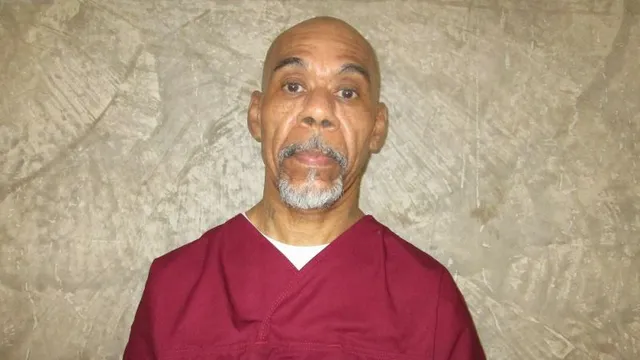
Oklahoma judge halts execution of man amid clemency hearing dispute
2025-06-09 22:20- An Oklahoma judge issued a temporary stay of execution for John Fitzgerald Hanson, scheduled for lethal injection.
- The stay follows claims from Hanson's lawyers that he did not receive a fair clemency hearing.
- The case draws attention to the legal complexities surrounding death row and the integrity of clemency processes.
Express your sentiment!
Insights
In Oklahoma, an imminent execution was paused when an Oklahoma judge issued a temporary stay on Monday, affecting John Fitzgerald Hanson, who had been scheduled for lethal injection on the upcoming Thursday. This decision arises from concerns raised by Hanson's legal team regarding the fairness of his clemency hearing that took place the previous month. The attorneys argued that one board member's potential bias compromised the integrity of the proceedings. Sean Malloy, a member of the Pardon and Parole Board who had affiliations with the Tulsa County District Attorney's Office during Hanson's prosecution, participated in the clemency process even though he claimed to be unaware of Hanson's specific case. The board's vote to deny clemency was split 3-2. Hanson's legal representation, led by Emma Rolls, emphasized the importance of due process for death row inmates, advocating for equitable treatment under Oklahoma's executive clemency regulations. The state Attorney General Gentner Drummond contended that the district judge lacks the authority to grant a stay and is seeking to have the Oklahoma Court of Criminal Appeals reverse this decision. The complexity of Hanson's case is underscored by his history; after being convicted of carjacking, kidnapping, and murdering Mary Bowles in 1999, he was transferred to death row following an expedited process initiated by the Trump administration. Notably, prior to his transfer, Hanson had been serving a life sentence in a federal prison in Louisiana, with convictions marking him as a career criminal, which further complicates the legal narrative surrounding his death sentence.
Contexts
The clemency process for the death penalty in Oklahoma has been a topic of extensive discussion and scrutiny, particularly due to the complex interplay of legal, ethical, and social considerations. The state's approach to clemency plays a critical role in determining the fate of individuals sentenced to death, where the clemency board evaluates requests based on various factors, including the circumstances of the crime, the offender's background, mental health issues, and the broader implications of executing a person. This process serves as a crucial check within the judicial system, providing an avenue for mercy in cases where there may be compelling reasons to reconsider the imposition of the death penalty. Ultimately, the clemency board's recommendations can lead to commutations or denials, significantly impacting the lives of those on death row and their families. Oklahoma's clemency process is also influenced by state laws and procedures that dictate the protocols to be followed during this critical review. Legal provisions allow the clemency board to review petitions from individuals on death row, often considering evidence of mitigating factors that may not have been adequately presented during the initial trial. This includes examining claims of intellectual disability, mental illness, and other relevant legal defenses. Furthermore, the process must adhere to strict timelines and requirements to ensure that individuals receive fair consideration while navigating the complexities of the legal framework that governs capital punishment in the state. The public perception of the clemency process is shaped by broader societal attitudes toward the death penalty and issues of racial and economic disparities within the justice system. Advocacy groups often highlight cases where individuals have faced significant sentences despite questionable evidence or irregularities in their trials. The clemency process, therefore, is not just a legal mechanism but a social reflection of evolving norms regarding justice, rehabilitation, and the state’s role in determining life and death. Increased activism around these issues has sparked a debate regarding the moral implications of capital punishment and whether clemency serves as a means of ensuring that justice is served equitably and humanely. In recent years, Oklahoma has witnessed challenges to its death penalty framework due to concerns around execution methods and procedural inconsistencies. The clemency process has been examined as a potential remedy in addressing these concerns, as advocates argue for more comprehensive reviews to mitigate the risks of wrongful execution. This situation calls for a continued examination of the clemency procedure, ensuring it remains an effective safeguard against the irrevocable nature of the death penalty. As discussions around criminal justice reform continue to evolve, the Oklahoma death penalty clemency process remains a crucial component in fostering accountability and compassion within the state's legal apparatus.